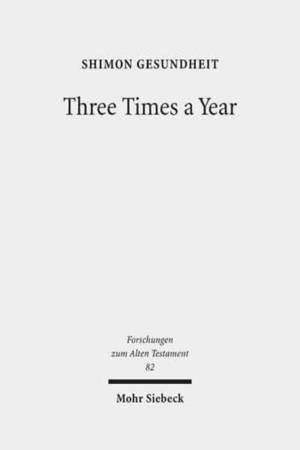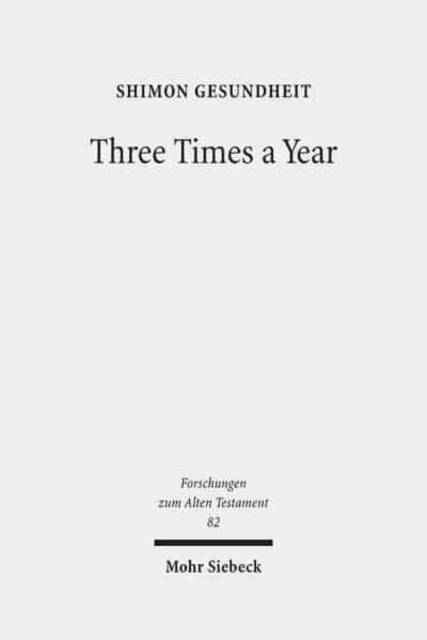
- Afhalen na 1 uur in een winkel met voorraad
- Gratis thuislevering in België vanaf € 30
- Ruim aanbod met 7 miljoen producten
- Afhalen na 1 uur in een winkel met voorraad
- Gratis thuislevering in België vanaf € 30
- Ruim aanbod met 7 miljoen producten
Zoeken
€ 114,95
+ 229 punten
Omschrijving
The festival calendars in the Pentateuch have made up the heart of critical biblical research from the beginning. Each of the calendars was thought to have taken shape against its own specific historical background and to accurately reflect a distinct stage in the development of Israel's cultic and social institutions. Classical hypotheses used them to distinguish the different legal codes in the Pentateuch from each other, to define the original compositions, and to arrange them relative to each other in an historical, chronological sequence. Shimon Gesundheit challenges the classical historical reconstructions and the methodology driving them. He presents an alternate point of view, according to which the festival laws do not simplistically reflect the specific cultic or social realities of actual historical periods. Rather, through their legal discourse, they shape and promote new ideas by textual revision and redaction, in the lemmatic style of midrash, and they represent a process of progressive literary development.
Specificaties
Betrokkenen
- Auteur(s):
- Uitgeverij:
Inhoud
- Aantal bladzijden:
- 277
- Taal:
- Engels
- Reeks:
- Reeksnummer:
- nr. 82
Eigenschappen
- Productcode (EAN):
- 9783161509803
- Verschijningsdatum:
- 31/12/2012
- Uitvoering:
- Hardcover
- Formaat:
- Genaaid
- Afmetingen:
- 153 mm x 229 mm
- Gewicht:
- 580 g

Alleen bij Standaard Boekhandel
+ 229 punten op je klantenkaart van Standaard Boekhandel
Beoordelingen
We publiceren alleen reviews die voldoen aan de voorwaarden voor reviews. Bekijk onze voorwaarden voor reviews.











